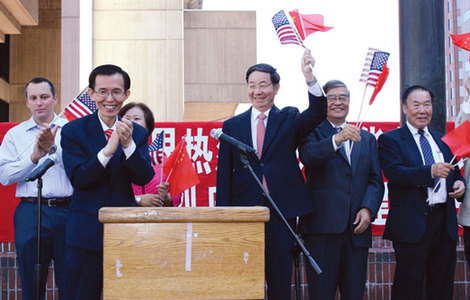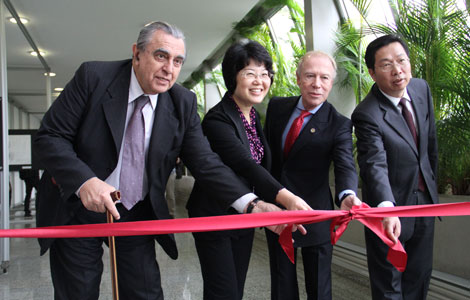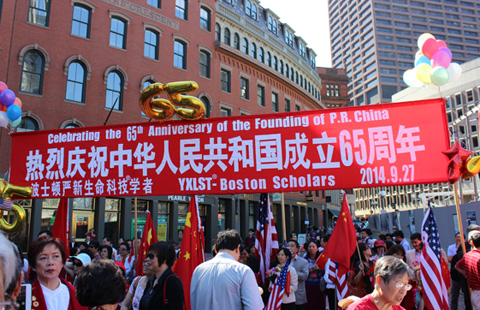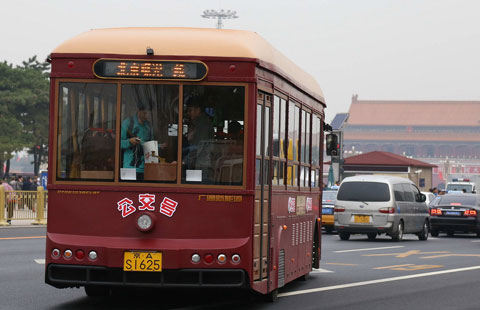Officials who take gifts face tougher penalties
Updated: 2014-09-29 07:34
By An Baijie(China Daily)
|
||||||||
Government officials who accept gifts or money will face criminal charges and could go to jail if a draft amendment to the law comes into force, according to legal experts.
Chen Xingliang, a professor of criminal law at Peking University, said the measure is included in a draft amendment to the Criminal Law, which has undergone eight revisions since it was enacted in 1979.
The proposals would impose harsher penalties on officials who abuse their positions amid the continuing anti-graft campaign, he said.
Under the current rules, officials are charged with the criminal offense of bribery only if they accept money or gifts and use their official powers to benefit those who have provided the inducements. Officials are not charged with bribery if they accept money or gifts but do not provide assistance.
If the draft amendment is approved by the Standing Committee of the National People's Congress, the country's top legislative body, officials who accept money or gifts will be prosecuted even if they have not abused their powers to benefit others.
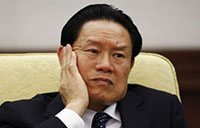 |
| Internet explodes after Zhou Yongkang nabbed |
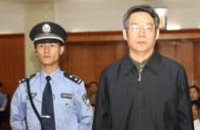 |
| Former planning official admits graft |
Currently, officials who take gifts or money but do not use their powers to benefit others are punished under the Party's disciplinary rules, and face penalties such as removal from their posts, said Jiang Ming'an, a law professor at Peking University.
If the draft amendment is approved, officials who accept gifts or money will face tougher punishments such as imprisonment, Jiang said.
Some officials accept gifts or money during private events held by their families such as weddings, birthday parties and even funerals. This practice is banned under the Party's disciplinary rules but is not forbidden by law, he said.
Officials should accept gifts or money only from relatives; otherwise, they risk punishment in line with the laws and regulations, he added.
The Party's Central Committee has put forward a set of clean-governance rules, including requirements to lead a frugal life and cut public expenditure on government vehicles, receptions and overseas trips, since the new leadership was elected in November 2012.
A total of 30,420 government officials were punished by the disciplinary authorities last year for violating the rules, according to the Central Commission for Discipline Inspection of the Communist Party of China, the country's top anti-graft watchdog.
On June 23, the commission announced that Duan Xinhong, a prosecutor with Linfen City People's Procuratorate in Shanxi province, had been dismissed from his post for accepting 52,400 yuan ($8,550) from 143 people during the funeral of his father last November.
anbaijie@chinadaily.com.cn
Most Viewed
Editor's Picks

|

|

|

|

|

|
Today's Top News
US firms remain optimistic about China
China thanks foreign talent for contributions
Top venture capitalists meet in Silicon Valley
China, US should cooperate in energy: experts
15 people, mostly teens, shot at Miami nightclub
Currency swap potential boon to Argentia
Sino-Venezuela ties at 'highest level'
FM makes official visit to Mexico
US Weekly

|

|

